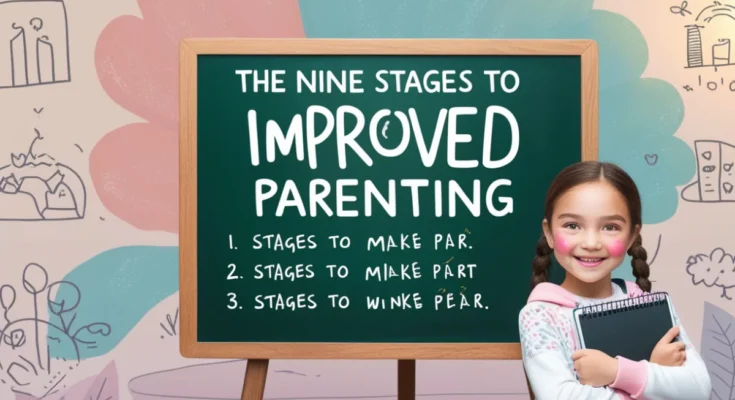Hello people! “Want to change your family lives with these 9 steps?” Some of the toughest experiences can accompany every lauded endeavor, so it goes with parenting. Here is how you can improve your parenting skills to be more powerful in interacting with your child.
Let’s dive in!
Table of Contents
Practice Active Listening

Thus, the epitome of good communication can’t be achieved without the practice of sufficient listening. SUGGESTING LISTENING Nonverbal: Look your child in the eye and actively listen, nod, and respond patiently. That makes them feel that they are being valued by the services and especially that their opinions and feelings are considered.
Set the appropriate working relations from the very beginning
The children are comfortable when they know what is required of them. Explain what rules children should follow and make sure they realize if they are punished, it is for a good reason. Setting up such boundaries is also important so they are properly observed and not crossed, whereby some become blurred.
Model Positive Behavior
Where words fail, actions speak louder, meaning children learn much more by example. When you want them to change for the better, which is most of the time, then demonstrate the positive behavior you expect from them, such as courtesy, non-stressful ways of handling pressure, and honor. This air helps them imbibe these positive actions.
Foster Open Communication
Support people when they discuss matters without stigma. Anytime children think they can speak about worries or even mistakes, they will run to seek help rather than cover up issues. Maintaining that line of communication from the beginning avoids having larger problems in the future.
Give Constructive Feedback

Do not dwell on what was done wrong, but use constructive criticism. Concentrate on what they got right and how they can do better next time so that the emphasis is on development rather than fault finding. This helps foster confidence and, within any team, resilience.
Encourage Independence
Letting children help with several age-appropriate chores and making decisions within safety limits. This, in turn, allows them to harness problem-solving attributes, self-esteem, and accountability. Self-reliance Self-reliance and transformation to adulthood can appropriately be promoted through Independence.
Celebrate Small Wins
Rewarding is very effective. In as much as punishments work, rewards do wonders, too. Appreciate them, even if it’s something simple. Encourage them and appreciate their hard work, patience, and generosity, not the result. Praise should be given as frequently as possible to increase the tempo of achievements of the kids and correct their behavior.
Stay Patient and Calm
Parents must be patient most of the time while parenting children, especially at certain difficult moments. Take a timeout, or better still, take a few deep breaths when one gets frustrated. Teaching children to respond to stress is key; displaying good behavior during stressful events is critical.
Prioritize Quality Time
Any time parents can spend with their children, especially when limited, deepens the parent-child relationship. Encourage the patient to do something they like, ask how their day went, and participate in hobbies. Quantity ensures that they are included, needed, and remembered according to their time, and in return, we get to have quality time with them.
I have realized that parenting requires patience, empathy, and a lot of effort. Following these steps creates the opportunity to help your child grow while creating a warm and supportive family environment.
The following video explains about Prioritize Quality Time:
Conclusion
Using these nine steps discussed above in your daily parenting makes it easier to make the environment appropriate and suitable for the child. So, being an avenue of free and healthy communication while at the same time being endurable and patient, you set the groundwork for their growth and confidence. Parenting is a process, but taking the following steps will help bring about lasting positive change.
Are you ready to explore the 9 steps to improve the parenting experience?”
FAQ
1. What does positive parenting entail?
The Power of Positive Parenting | Patient and Family Education. It is about treating children gently or with the special thing they need most: affection. It is about shaping behavior by helping the child do what the parent wants through positive reinforcement.
2. What is the concept of successful parenting?
Not only do successful parents ensure their children avoid the negatives, but they successfully guide the positives as well. They imagine the kind of person they want their children to grow into.
3. How common is step-parenting?
Overall, 42% or 102 million adults have a step connection (either a stepparent, a step or half-sibling, or a step-child).
4. How does good parenting make a difference in a child?
Positive parenting assists the child in dealing with non-social or social issues. Positive parenting is necessary within the initial stages of the evolution of the cognitive apparatus, self-regulation, and the thinking process.




